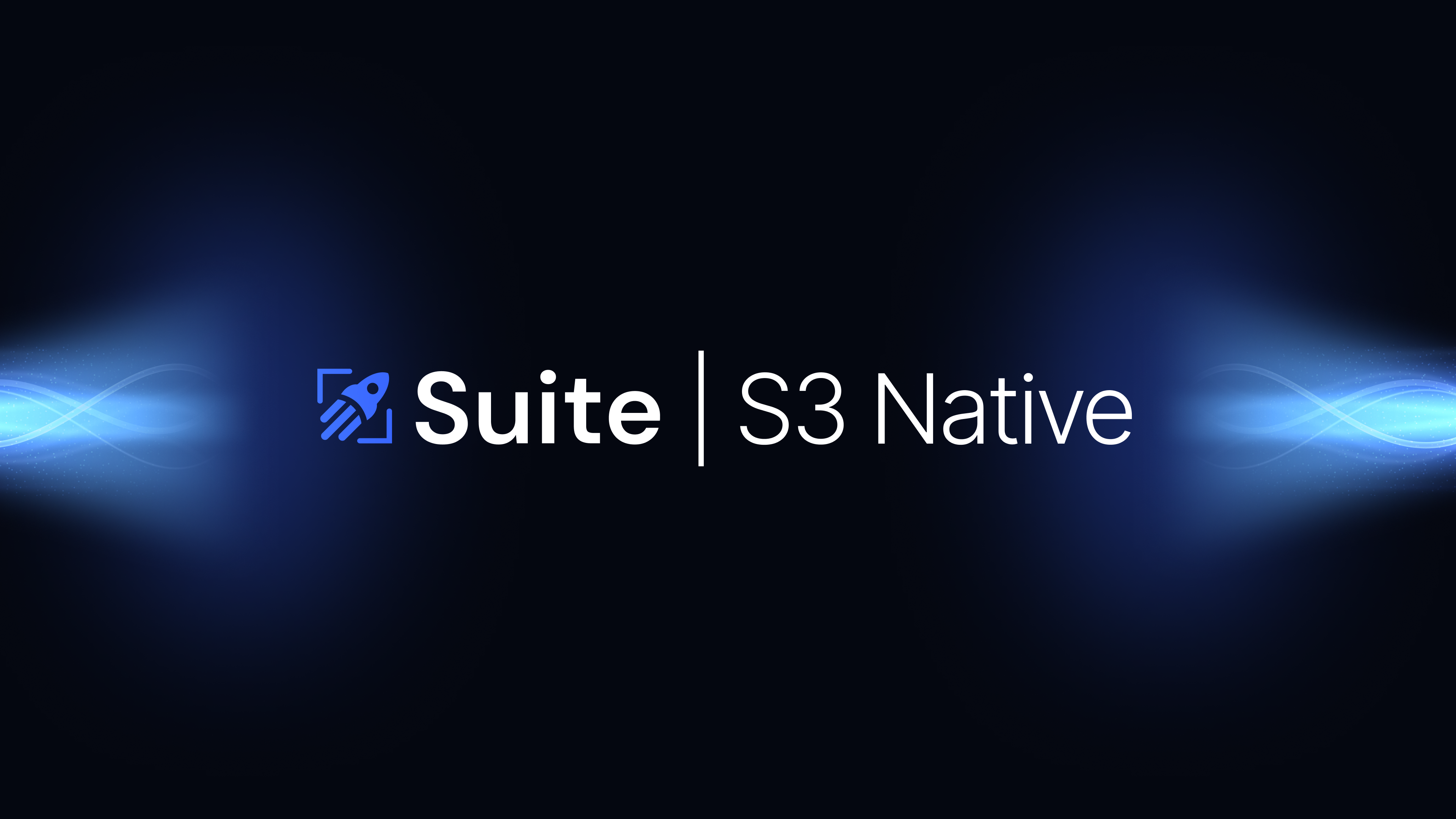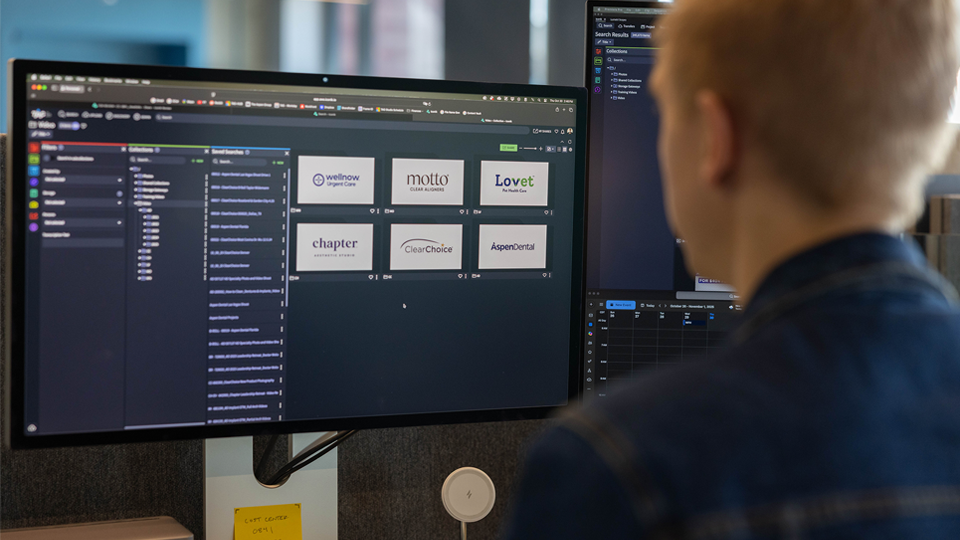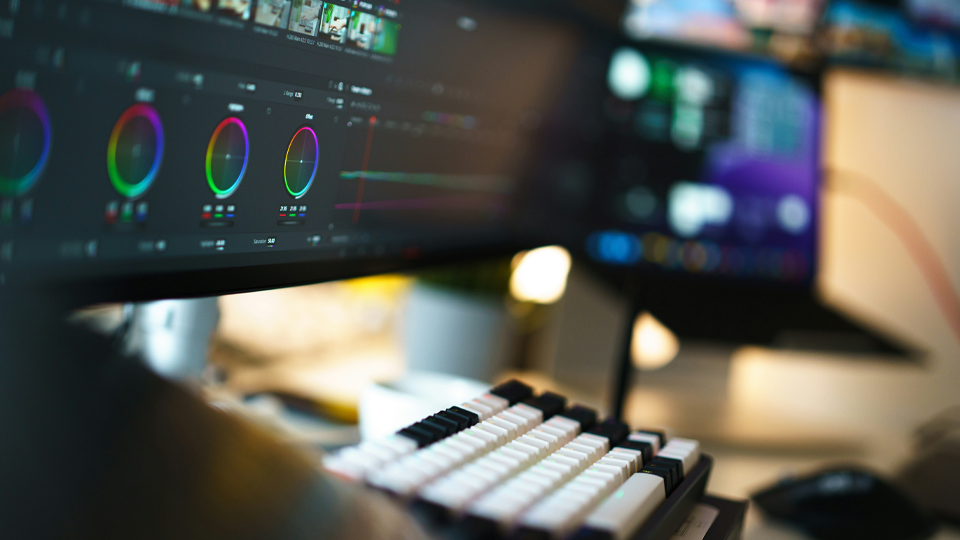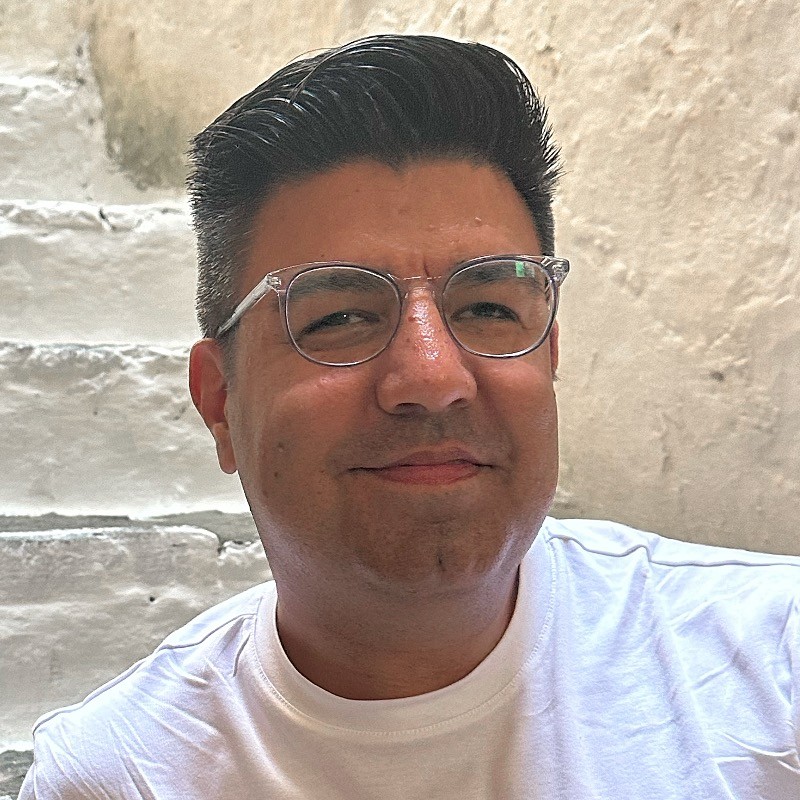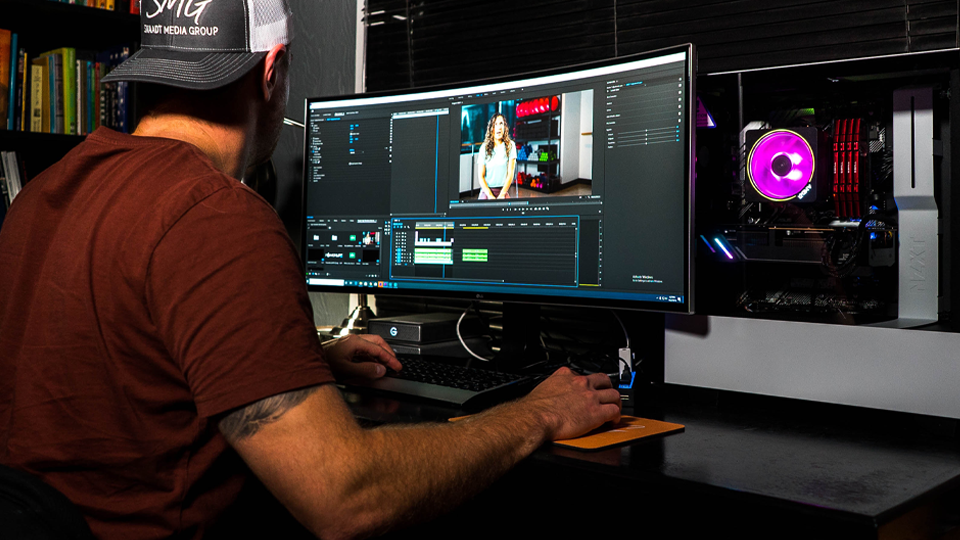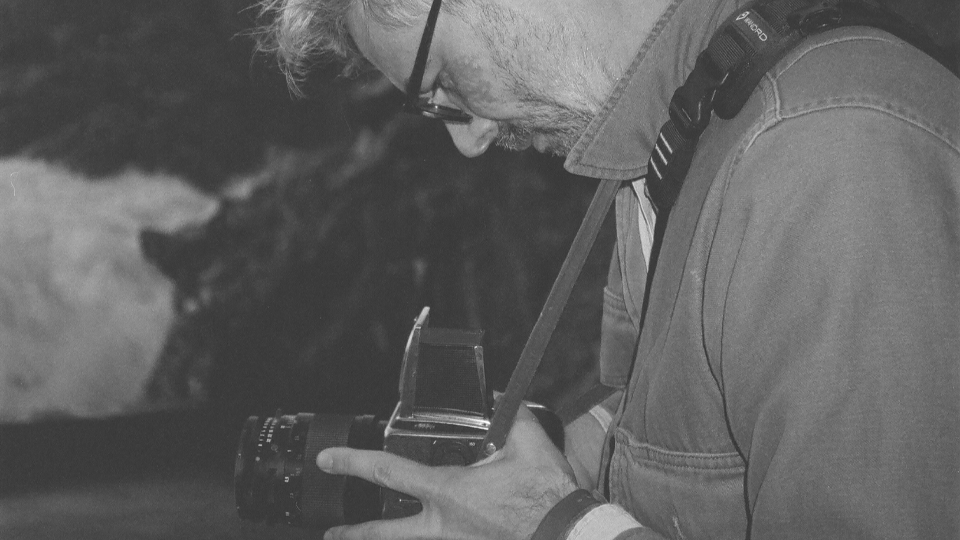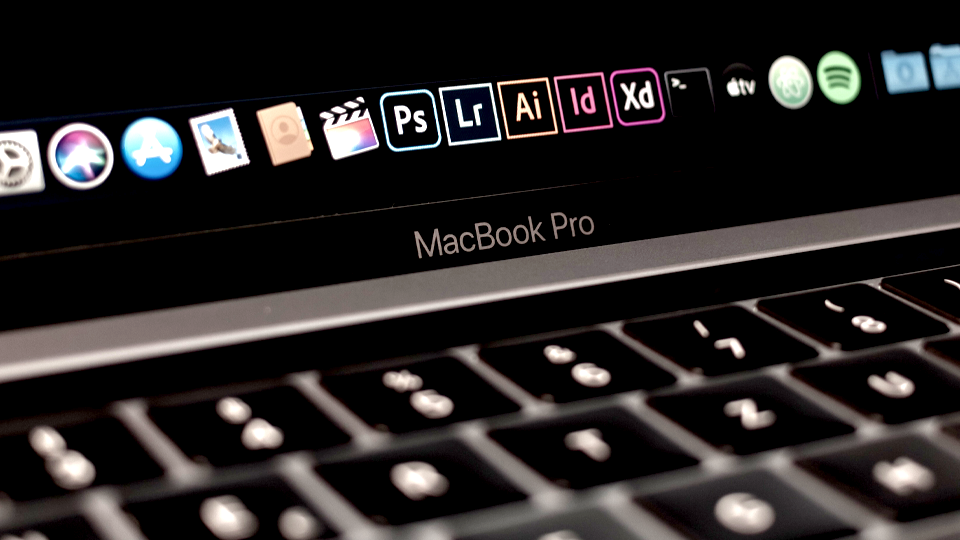Inside the Studio: Nina Helene Hirten on Editing as Rhythm, Theory, and Art
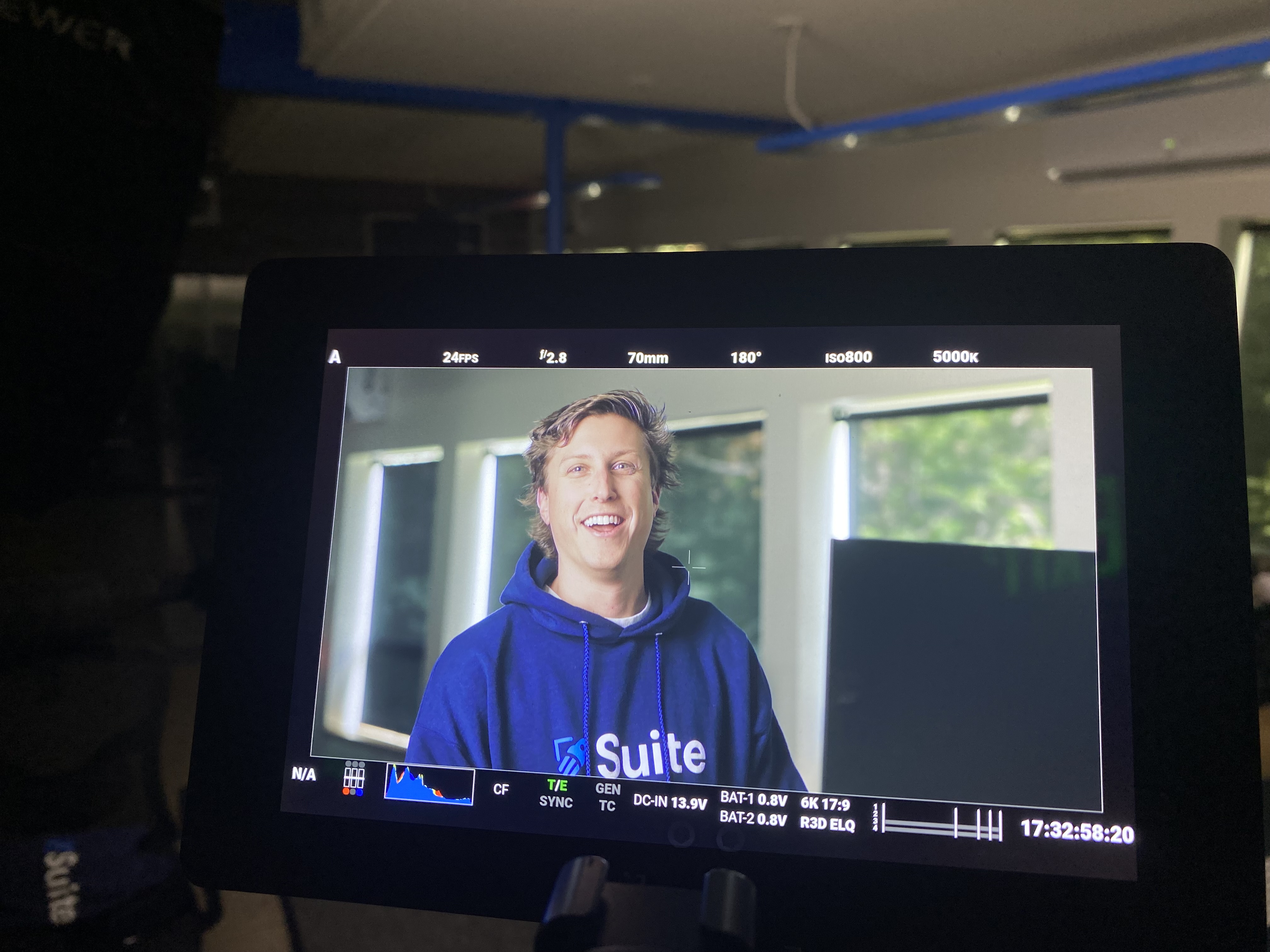
Samuel Taggart

10 Minutes

Nina Helene Hirten understands the role of video editor—it isn’t about drawing attention to yourself, it’s about elevating the collective work. With a deep respect for story and structure, she brings clarity, flow, and a touch of personality to every frame. Coming from a background in music, illustration, and animation, Nina’s creative inspirations are widespread, but always driven by a mix of instinct and editing theory.
Hirten's portfolio runs the gamut, including editor on Amy Pohler’s animated series Duncanville, Universal’s Curious George: Royal Monkey, and Previsualization Editor for mega movies such as Ant-Man and the Wasp, Venom, Jungle Cruise and Godzilla v Kong. In addition, she edits indie projects in across numerous genres—animation, horror, drama, and more. Currently, she is a lead editor on Fox’s animated TV show, Grimsburg starring Jon Hamm.
Hirten has built a career in post production by staying curious and being ready when opportunity knocks. In this exclusive interview, Hirten shares what it’s like to build ideas from scratch, the importance of tapping into your local community, and how to keep momentum brewing even when the big gigs slow down. Here, hear about her early inspirations, love of editing theory, and how she discovered style in a role that’s often designed to be invisible.
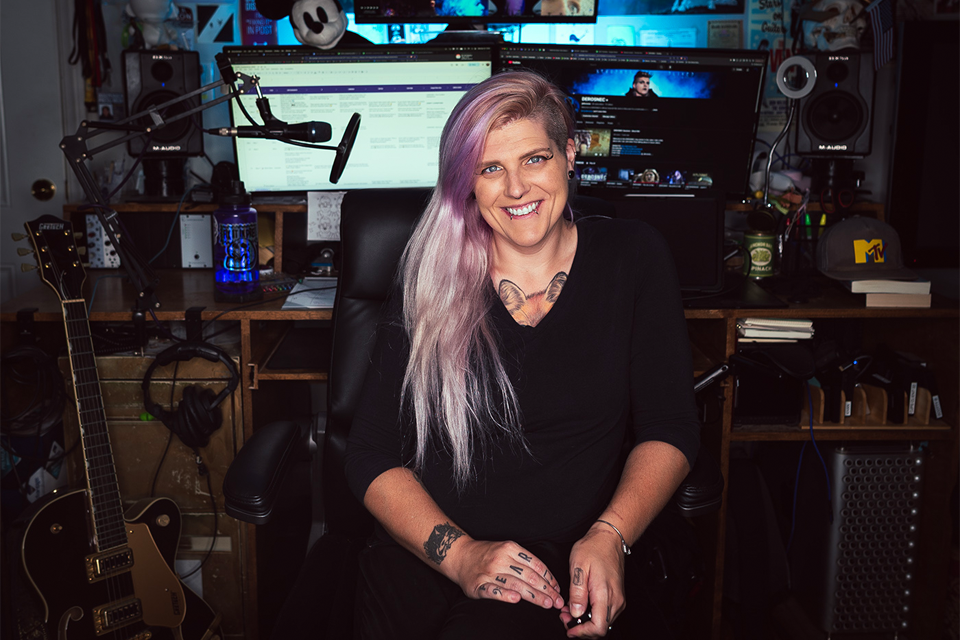
What’s shakin’ in your world right now?
I am always working on something. Always. Right now, I'm actually in between the “big gigs”, which is usually a TV show or a movie. But even with the lull, I still have tons to do… I just finished directing a music video for The Man from Alphabet; it’s the theme song for a new horror movie called Popeye The Slayer Man. When I'm not editing, I'm out shooting stuff, for myself, friends, for clients, all sorts of people.
What drew you into video editing in the first place?
When I was a kid I wanted to work for Disney as a traditional 2D animator. Then Toy Story came out and it quickly became clear that this style of animation might not be the most viable career path—that the technology was going to change dramatically...
I remember watching the director commentary on Alien and hearing Ridley Scott talk about how he got the movie made... After months of just pitching a script and getting nothing but "no" from the studios, he ended up creating intricate, colored storyboards that immediately got the movie green-lit. That made me think storyboards might be the next best thing. Then, in high school, I joined a program that mixed humanities, social studies, and history—and the point was to learn how to make videos to support learnings from class. I ended up doing a lot of video work and most of the editing.I just fell in love with video editing. I stuck with it, went to film school, and knew that I wanted to be involved in movies. The editing chair was really always where I was supposed to be.
What was one of your “big break” moments getting into editing?
I started Oh Just Peachy Studios, my production company, when I was just 11-years-old. I was freelancing, sourcing gigs via Craigslist ads, doing graphic design and illustrations. Realizing that people would pay me to draw pictures was huge, so I'd make posters or whatever else they needed. From that experience, I learned so much about working with people. Clients will say they need one thing, but often times they actually need something else. [Laughs]
Later, when I was working at The Third Floor, a previs studio in Los Angeles, my first studio job was a Production Coordinator. I made connections with the editing department and I was finally given a break. Getting switched over to Editorial was really pivotal, that helped me get the credits and clout I needed to progress in the industry.
As they say, your network is your net worth…
Exactly. It's also being in the right place at the right time, but it's being ready for it. If you’re not ready for the opportunity, or you’re too afraid to ask for what you want, that’ll stifle things. I kid you not, everyone at The Third Floor knew I was gunning for an editor spot… it’s this balance of being pushy without being annoying. To get what you want, to capitalize on the opportunity, means being fearless and ready for it when it arrives.
How do you feel you have been able to leave your mark on the editing space?
I'd like to think they come to me for my expertise in editing theory. I also like to think I'm fun in the editing room, I try to keep things light and try not to put too much of my ego into it. I'm also not afraid to ask questions… because I'm not just there to push buttons, I'm not that kind of editor. I'm also super organized and I'm very fast. My work for Grimsburg is a great example… the team would be talking about ideas, and before they could even ask, I’d be done adjusting the edit. That's my signature move.
What aspect of the editing process do you find most exciting?
To me, video editing is very musical; they’re both very rhythmical. There’s a structure that comes with telling a story, as well as a song. There’s a beginning, middle, and end, happy and sad moments, emotional ups and downs. When you’re editing, you’re doing all of those things, putting everything together to tell a story. It’s like a big puzzle or a giant Tetris board—you’re just trying to always find the right piece for the right spot.
In your opinion, what’s one of the most under-appreciated aspects of video editing?
Honestly, if I'm doing my job, nobody knows I'm here. That's the double-edged sword of being an editor. Especially if I'm the editor, it's not my movie, I didn't write it, I'm not paying for it… somebody's hiring me to edit and that's it... my job is to bring their vision to the screen, so I have to put myself in their shoes and the shoes of the intended audience.
Editing often means subtlety. I love editing theory and there's a lot to explore there. That might be the most “unseen” aspect of it. One theory I find particularly interesting was actually made popular by Soviet-era montage films in the early 1900s. It was all about knowing where the viewers eye would be drawn to on the screen—part of the reason why the cuts seem hidden is because your eyes are always where they needs to be. That's all theory based. Once you get into the psychology of editing from a story perspective and a visual perspective, that's really the magic of editing.
That’s interesting you bring up the notion of magic…
Movies are magic, even without all the effects. If you go back and watch Alfred Hitchcock’s films; he was just great… especially with the Kuleshov Effect, which is basically juxtaposing one picture next to another. Not only do you have a separate story, you potentially have a completely different feeling or response from the audience. We’re all being manipulated emotionally through the magic, the psychology, and the theory behind the edit. If you know what you’re looking at, you can actually realize when you’re being manipulated.

What importance do you place on learning editing theory versus just trusting your gut?
You have to know the rules to break them the most effectively. It’s difficult to make something that goes deep and lingers… for me, David Lynch’s movies achieve that effect. Anyone who’s willing to put in the time and effort to understand the psychology behind editing, their final products are that much better—they’re making deliberate decisions. Consequently, the editing process often moves faster because you’re able to spend more time making informed decisions. You could spend all day futzing and experimenting… but it really boils down to how you can apply the theories, the psychology, the structure.
How do you define originality in this world of movie remakes and remixes?
Originality comes from breaking the rules. If you're working on a giant franchise—like a Marvel movie—there are established rules and characters. The tough part is taking that legacy and going deeper. Originality comes from doing it in a unique way: Use the rules while going deeper than what already exists, beyond the superficial. Editors need to do less of a remix and more of a dig into the character or the world itself.
You’re also involved with Women in Media, could you speak to that community?
Women in Media (WIM) has a lot of networking events & workshops; their website is also a great way for people to connect if you’re looking to join a crew or hire people. I was involved with one WIM project, which was a music video shoot that also served as a workshop about working in a LED volume. This is undoubtedly the future of shooting indoors, so we were learning how to use those spaces effectively. The music showcased also came from a member, so it was a win for everyone. And it’s just great to chat with everyone about the art.
What’s your biggest takeaway from working with Women In Media?
You have to make your own path. You have to find other people in your same position to make something happen. You have to make local community connections that hold the same values, goals, and creative pursuits. We have the opportunity to shape a new Hollywood. The next 10 years are going to be an adventure…

If you could change one thing about the film industry right now, what would it be?
The biggest thing is getting the networks to stop trying to make the old way work. It’s all about risk-taking. Big studios are less willing to take a risk on new properties. 20 years ago, studios would sink money into big franchise pictures, but they would also save a chunk of their budget for new people and fresh talent. tudios need to stop being so risk-averse and start putting money into fresh ideas and people.
Lastly, when someone has a big idea, what’s the best way to get it out into the world?
Last year, it was one thing; this year, it’s something else. We're going to have to figure out new models, new ways to make our projects and put them out in the world. Simply, though, the first step is to just do something. Write it down. Have pitches ready. You have to be ready when opportunity presents itself. It could be as simple as you just having a coffee, drawing a picture, and somebody walks up to you and says, “Oh, wow, I really like your drawing. Do you have a website?” Who knows, maybe they're a venture capitalist who wants to support your work or vision...
The point is that if you're not doing anything, the universe is not going to give you anything back. Nothing that beats being in a room with people that love doing the same things as you. If I'm pitching animated TV, I want to go to every single animation networking event; I want to know everybody. I want to know who they are, and I want to prepare myself for the day that I do have the funding. You just gotta get out there.










